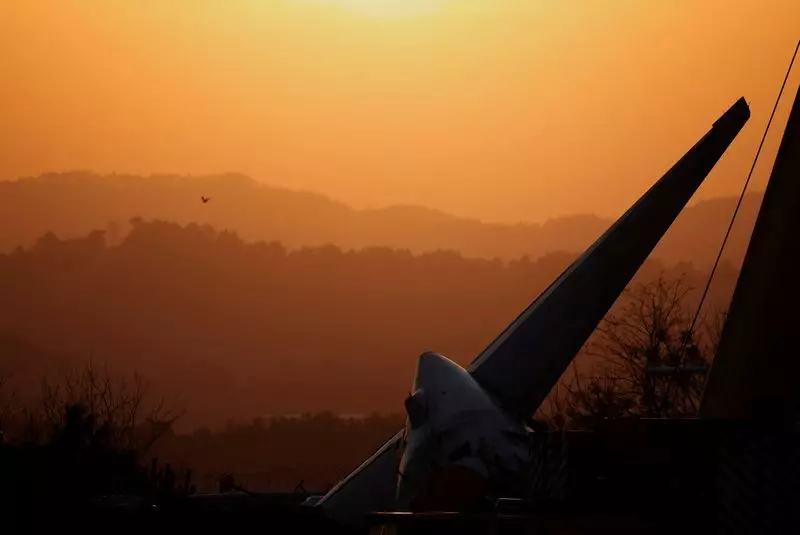The tragic crash of a Boeing 737-800 operated by Jeju Air on a flight from Bangkok to Muan County, South Korea, has sent shockwaves across the nation and raised critical concerns regarding aviation safety protocols. Occurring on a Sunday, this incident resulted in the deaths of 179 individuals, marking it as South Korea’s deadliest aviation disaster. The immediate aftermath necessitated urgent actions from the South Korean transport ministry, compelling them to implement extensive inspections of the country’s fleet of Boeing 737-800 aircraft.
Originally set to conclude on Friday, the inspections of all 101 Boeing 737-800 jets have been extended until January 10. This decision emphasizes the urgency and seriousness of the situation, as officials aim to scrutinize every aspect of these aircraft, including maintenance records, landing gear, and engines. Such thorough checks showcase the ministry’s commitment to ensuring public safety following the disaster. Furthermore, the inspectors have alarming authority to suspend airline operations should serious maintenance violations be identified.
In a concerted effort to unravel the circumstances surrounding the crash, South Korean investigators are joining forces with the U.S. National Transportation Safety Board (NTSB). A contingent of investigative team members is set to travel to the United States next week to analyze crucial flight data recordings. This collaborative undertaking signifies not only an introspective look into domestic aviation safety but also reflects the international standards adhered to when dealing with aviation mishaps. Additionally, part of the investigative process includes analyzing data retrieved from 107 mobile phones found at the wreckage, providing a multi-faceted angle to understanding the events leading up to the incident.
The acting President of South Korea, Choi Sang-mok, has publicly urged investigators to expedite the evidence collection from the crash site and focus on analyzing additional layers of data, such as the cockpit voice recorder. Critical questions linger, particularly regarding the aircraft’s failure to deploy its landing gear and the pilot’s decision-making process, especially after declaring an emergency following an alleged bird strike.
Moreover, law enforcement authorities have begun their investigations into Jeju Air and its partnership with the Muan International Airport. The move to restrict the chief executive and another official from leaving the country hints at the gravity of the inquiry, indicating potential legal ramifications for those involved.
As South Korea grapples with the implications of this disaster, the aviation sector must embrace a renewed commitment to operational excellence and safety standards. The recent disaster not only brings to light vulnerabilities within the existing safety protocols but also serves as a wake-up call for continual vigilance in the aviation industry. Moving forward, it is critical for airlines to reinforce their training, operational procedures, and maintenance practices to restore public confidence and ensure the safety of passengers in the skies.

